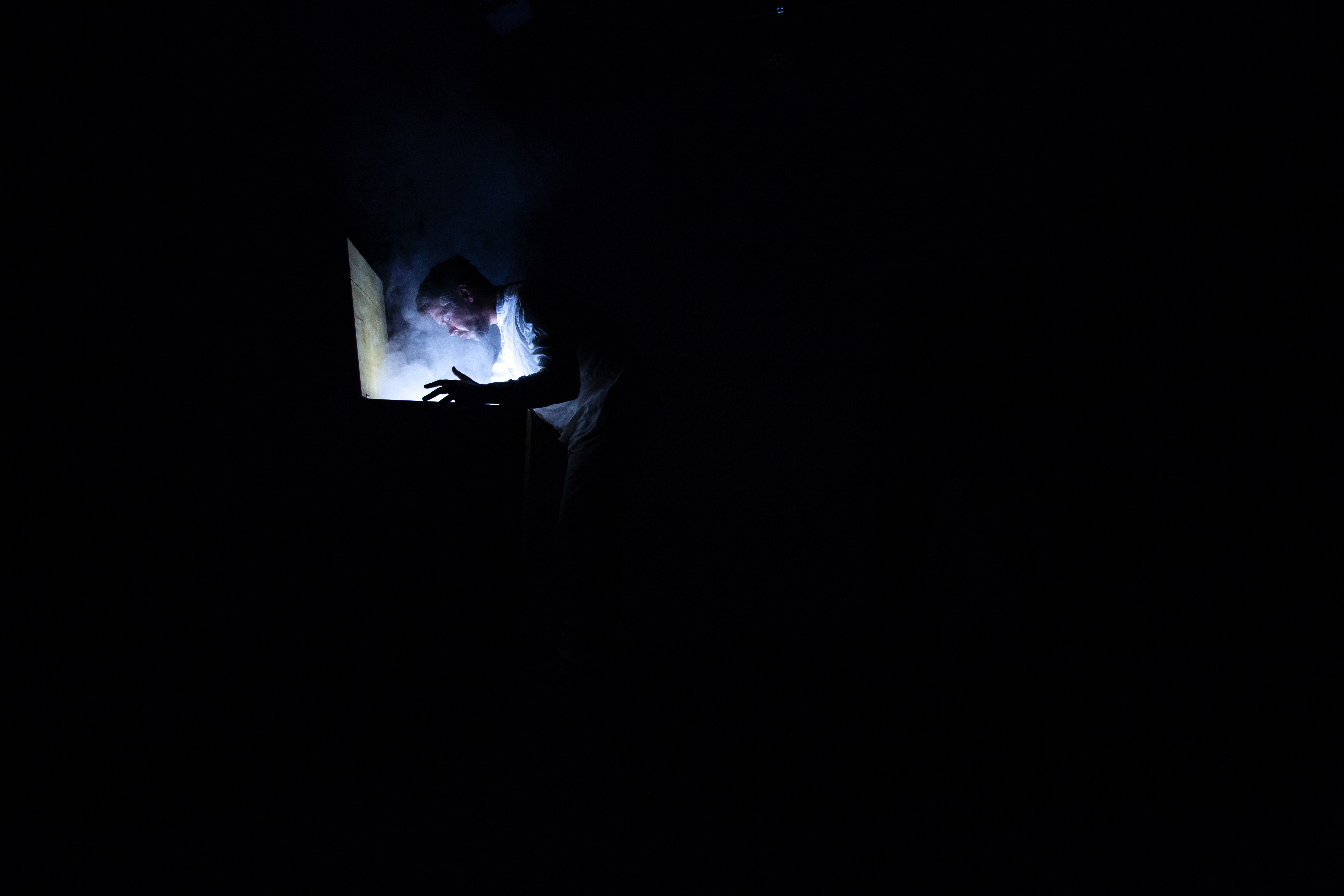Haley Woodward is missing. Dale is searching for her. And Austin cannot stop thinking about a beehive …
Hive Mind, written and directed by former UWA student Geordie Crawley, now co-director of Rorschach Beast, opens on May 1st and runs until May 19th at the Blue Room Theatre. The show focuses upon the threat faced by physical, real communities as our online presence ever grows.
Pelican Magazine caught up with Geordie for a bit of insight into the show and their creative practice.
Where did the idea for the show come from?
I became obsessed with bees and the idea of owning a beehive for a while. I was researching everything about them. I was loving it. At the same time I was thinking a lot about what my foundational beliefs are. In what can I say I have absolute faith? What is a fact I hold to be true beyond anything else? I was struggling. So I just started writing this play about a guy who becomes obsessed with a beehive, and he believes that it gives him true insight into the nature of the universe.
From there I just started listing things that I thought were cool and interesting, or images I would like to see on-stage, and tried to see where they could fit into this story I had started writing.
Your theatre company, Rorschach Beast, claims to focus on audience engagement – how do you encourage or create that kind engagement?
I think audiences love a good story. There’s a lot of talk in the industry at the moment about theatrical form and style, but there’s something to be said about trying to write a good script, with multi-dimensional characters, and to just tell a damn good story.
A lot of art is also about process. The process that goes into making art is just as important as the final product, but something Rorschach Beast tries to remember is that we’re still making art for an audience. This play, show, or whatever, is still going to be consumed by someone as a piece of art, and so we should try and make sure that they are satisfied, in some way, by the final product.
In regards to the idea of online communities threatening the existence of physical communities, do you think that in a contemporary society there is a Nature / Culture divide?
Do I think there’s a nature/culture divide? Oh my gosh, yes. Whatever we define culture to be – and it really is the broadest of broad terms – I think, sits apart from whatever we consider nature to be. We can think about this in terms of how and where we devour “culture”. We’re normally indoors, looking at a screen or a stage, contained in some way, protected from the elements outside. But we can also think about how the art that’s being made very rarely engages with nature. A notable exception would be Boorna Waanginy: The Trees Speak at PIAF in 2017.
What do we lose and what do we gain through the growth of online communities as opposed to physical communities?
Communities are increasingly moving away from face-to-face networks towards an aggregation of online tools and platforms used to emulate face-to-face communities. The Internet at the moment is just an itty-bitty little baby. The technological revolution is still in its infancy, so for me to predict how communities are going to change from here on out would be foolish. But already it’s changing the way we date, manage our money, make our theatre… everything’s changing. So it makes sense that our sense of community would change with it.
What do we gain? An ability to create communities on a global scale. The ability to connect people from around the globe is amazing. But what do we lose? Those who rely on face-to-face communities, either because of issues with access or adaption, are in danger of being left behind.
I don’t think online communities will ever fully replace face-to-face communities, but as they grow more prominent it’s something people need to be thinking about.
For all those budding writers or directors out there – after studying at UWA how did your career develop to the point of co-directing a new theatre company?
I didn’t wait for permission to create my company. I just did it. During my final year at UWA my friend, and now company co-director, Izzy McDonald and I were talking about whether we were doing anything for Fringe in 2016. We didn’t have any plans so we decided to make our own. I put my hand up to write, and Izzy put her hand up to direct, and we decided to put on a show. We made a company, tried to do it all by the book, and just gave it a red-hot crack. We put on Girl in the Wood at The Blue Room Theatre Summer Nights, and it was a surprise smash-hit. We went home with the Best Emerging Artist Award, the Melbourne Fringe Ready to Tour Award, and a nomination for The Martin Simms Award.
Look, what I’m trying to say is that nobody’s gonna tell you now is the time to make a company, or put on a show. Just do it. Make some bold choices that have big consequences. The audience is smarter than you think, and everyone wants you to succeed. So just get on with it. You’re gonna be fine.
Hive Mind runs at the Blue Room Theatre from the 1st – 19th May 2018. You can get your tickets here.
Karl Sagrabb and Grace Huffer | Arts Editors
Karl and Grace study Art History. If you haven’t heard of Walter Benjamin, they haven’t heard of you.

